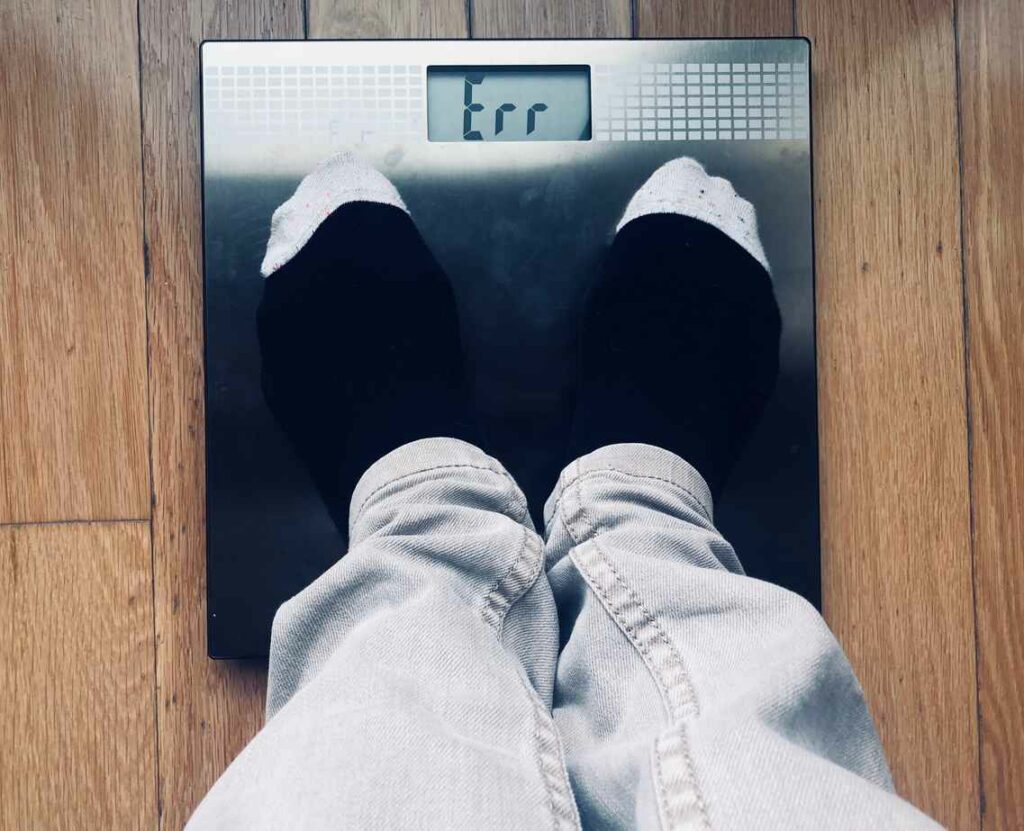While diet and exercise are often cited as the primary drivers of weight loss, the psychological aspects of weight loss are equally important and often overlooked. Understanding the psychology of weight loss can help individuals develop effective strategies to achieve their weight loss goals, maintain their progress over time, and improve their overall health and well-being. In this blog, we will explore the key psychological factors that impact weight loss and provide practical tips and strategies for managing these factors to achieve long-term success.
Contents
What Is The Psychology Of Weight Loss?
The psychology of weight loss refers to the various mental and emotional factors that influence an individual’s ability to lose weight and maintain their progress over time. These factors can include motivation, self-control, emotional eating, body image, and self-esteem, among others. For many people, weight loss is not simply a matter of eating less and exercising more. It also involves overcoming psychological barriers that can hinder progress and lead to setbacks.
Example Of Psychological Barriers

Stress, depression, and anxiety are common psychological barriers that can make weight loss difficult.
Stress can lead to overeating or making poor food choices, as individuals may turn to comfort foods for relief. Additionally, stress can disrupt sleep patterns and affect hormones that regulate appetite, leading to increased hunger and cravings. Chronic stress can also increase the production of the hormone cortisol, which can lead to weight gain, particularly in the abdominal area.
Depression can also be a barrier to weight loss, as individuals may lose interest in physical activity, have decreased motivation or energy, and turn to food for comfort. Antidepressant medications can also contribute to weight gain, making it even harder to lose weight.
Anxiety can lead to emotional eating or binge eating as a way to cope with anxiety symptoms. Additionally, anxiety can cause individuals to avoid social situations or certain foods, limiting their food choices and potentially leading to a nutrient-deficient diet.
Above all, it’s important to address these psychological barriers in order to achieve weight loss success. Strategies such as stress-management techniques, counseling or therapy, medication adjustments, and mindfulness practices can help individuals cope with stress, depression, and anxiety in a healthy way and promote weight loss.
How Do Psychological Factors Affect Body Weight?
Psychological factors can play a significant role in body weight, as they can influence an individual’s eating behaviors and physical activity levels. Some of the ways in which psychological factors can affect body weight include:
- Motivation: Motivation is a key factor in successful weight loss. Individuals who are motivated to lose weight are more likely to stick to their diet and exercise plan and achieve their goals. On the other hand, a lack of motivation can lead to procrastination, self-sabotage, and ultimately, failure to achieve weight loss goals.
- Self-control: Self-control is another important psychological factor that can impact body weight. Individuals with good self-control are better able to resist temptation, avoid overeating, and make healthy food choices, all of which can contribute to weight loss success. Poor self-control, on the other hand, can lead to binge eating, emotional eating, and other unhealthy behaviors that can contribute to weight gain.
- Emotional Eating: Emotional eating refers to the tendency to use food as a coping mechanism for stress, boredom, anxiety, or other emotions. Emotional eating can contribute to weight gain and make it difficult to lose weight, as individuals may eat even when they are not hungry or consume high-calorie, unhealthy foods.
- Body Image: Body image refers to an individual’s perceptions and feelings about their own body. Poor body image can lead to low self-esteem, negative self-talk, and a lack of confidence, all of which can make it difficult to maintain healthy habits and achieve weight loss goals.
- Stress: Chronic stress can have a negative impact on body weight, as it can increase levels of the hormone cortisol, which can lead to increased appetite and fat storage.
Overall, psychological factors can have a powerful impact on body weight, highlighting the importance of addressing these factors as part of any weight loss plan.
What Behaviors Lead To Weight Loss?

There are several behaviors that can lead to weight loss, including:
- Eating a healthy, balanced diet: Consuming a diet rich in fruits, vegetables, lean protein, and whole grains can help individuals lose weight. Reducing the intake of processed foods, sugary beverages, and high-fat foods can also aid in weight loss.
- Portion control: Portion control refers to managing the amount of food consumed at each meal. Eating smaller portions can help individuals reduce their caloric intake and lead to weight loss.
- Regular exercise: Engaging in regular physical activity, such as cardio and strength training, can help individuals burn calories, increase metabolism, and lose weight.
- Tracking food intake and exercise: Keeping a food and exercise journal can help individuals stay accountable and monitor their progress toward weight loss goals.
- Mindful eating: Mindful eating refers to paying attention to the sensory aspects of eating, such as taste, smell, and texture. Eating mindfully can help individuals tune in to their body’s hunger and fullness cues and reduce overeating.
- Getting enough sleep: Lack of sleep can disrupt hormones that regulate appetite, leading to increased hunger and food cravings. Getting enough sleep can help individuals regulate their appetite and promote weight loss.
Overall, incorporating healthy eating habits, regular exercise, and other positive behaviors into one’s lifestyle can help promote weight loss and lead to a healthier, happier life.
Conclusion
In conclusion, the psychology of weight loss is an important aspect of achieving and maintaining a healthy weight. Psychological factors such as motivation, self-control, emotional eating, body image, stress, social support, and perfectionism can all play a role in weight loss success or failure. By addressing these psychological factors and incorporating healthy behaviors such as regular exercise, mindful eating, and portion control, individuals can develop effective strategies for achieving their weight loss goals and maintaining a healthy lifestyle.
For more information, please contact MantraCare. Online therapy types include videoconferencing, phone sessions, messaging-based therapy, chat-based therapy, and therapy based on different problems. If you have any queries regarding Online Counseling experienced therapists at MantraCare can help: Book a trial therapy session


